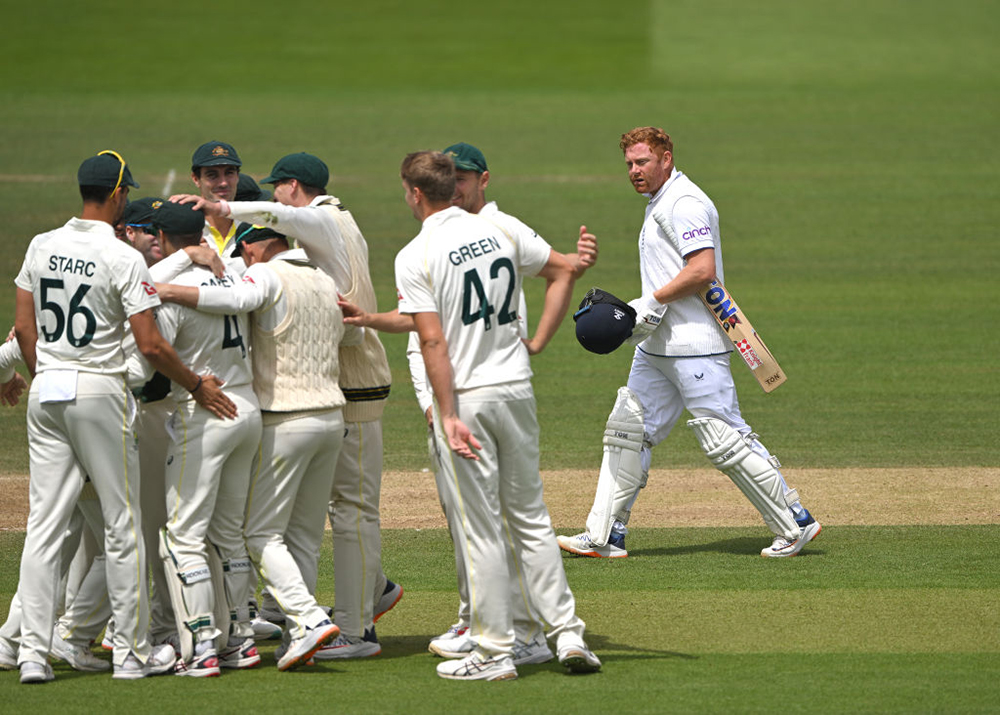What a week it has been for cricket. It began with that scalding ICEC report on the ‘racist, sexist and elitist’ state of the game in England. This report was commissioned by Ian Watmore, briefly the chairman of the England and Wales Cricket Board, as a kneejerk reaction to Azeem Rafiq’s accusation of institutional racism. The report was presided over by Cindy Butts, who has been an activist for Black Lives Matter and perhaps has an axe to grind. As it stands, the report is devastating for English cricket, but much more needs to be known about the way in which it was put together and about the credentials of those who did so. I have spoken since its publication to a number of people who have played and been involved with the game for many years. They have all said that this report does not begin to represent the game which they played. I am sure there are problems within English cricket which need urgently to be put right, but I find it hard to believe that the game is in quite the cesspit state that Ms Butts has made out.
The Lord’s Test Match started the next day and was surrounded by an astonishing buzz of anticipation. On the first day England’s bowlers wasted a good opportunity; on the second, it was the batsmen who kicked a colossal own goal. In the final equation, England had a day and one session to score 371 to level the series. The extraordinary Ben Stokes played one of cricket’s great innings. It deserved to win the match, but 155 was not enough and Australia move on to Headingley for the third Test, two matches up. But before the final ball had been bowled at Lord’s, the foundations of civilisation had begun to crumble. The ground, and especially the members in the pavilion, were consumed by apoplexy at the fall of England’s sixth wicket. Jonny Bairstow allowed the last ball of an over to go through to the wicket keeper and set off up the pitch. Alex Carey, the wicket keeper, then underarmed the ball into the stumps. All Australia appealed and after due consideration Bairstow was rightly given out. As it was the end of the over, Bairstow thought, if he thought at all, there was no problem, but the umpires had not called ‘over’. It is no good being squeamish about these things. The days when ‘it isn’t cricket’ held sway are disappearing. The swelling cry now is ‘let’s get real’. According to the laws of cricket, Bairstow was out. At this point Australia will rest their case.
Before the apoplexy rises to another level, it is worth remembering that although two wrongs seldom make a right, England and Douglas Jardine took the unsporting bowling tactic of Bodyline to Australia in 1932-33. There have been a number of other occasions too when the spirit of cricket has been dented. It is worth asking ourselves if England and the wicket keeper Bairstow, on a similarly frenzied occasion, might have reacted in the same way as Carey. These moments are driven by instant and instinctive reaction fuelled by an acute desire to win. In such a pressurised situation, is it wise for batsmen to be mindful that these things may happen and act accordingly? The hostile reactions of some members of the MCC when the Australians left the field was disgraceful and another instance of two wrongs not making a right.
I spent the Saturday evening of this second Test staying with friends in Hungerford and happily I bumped into Pete Burrell, Frankie Dettori’s masterful agent. He told me a lovely story of the 21-year-old jockey meeting the great England batsman Colin Cowdrey. It happened at Angmering Park, which was the home of Cowdrey’s second wife, Lady Anne Herries, the eldest of the Duke of Norfolk’s daughters. She was herself a trainer and Dettori had come down to work out on one of her horses. He and Cowdrey met at breakfast. Cowdrey asked the young Italian if he liked cricket. ‘I would rather watch paint dry,’ he replied. Cowdrey chuckled and said: ‘Come on Frankie, after breakfast I’ll teach you how to bowl.’ Dettori liked Cowdrey on sight and was keen to learn. Cowdrey taught him to bowl an impressive googly. Burrell saw all this happen and thought for a time about letting them know at Lord’s that he had found a potential match winner. As we know, Dettori stuck to racing, but any jockey who knows how to bowl a googly should surely be up for an immediate Stewards Enquiry. You never know what he might get up to in a mêlée around Tattenham Corner.





Comments